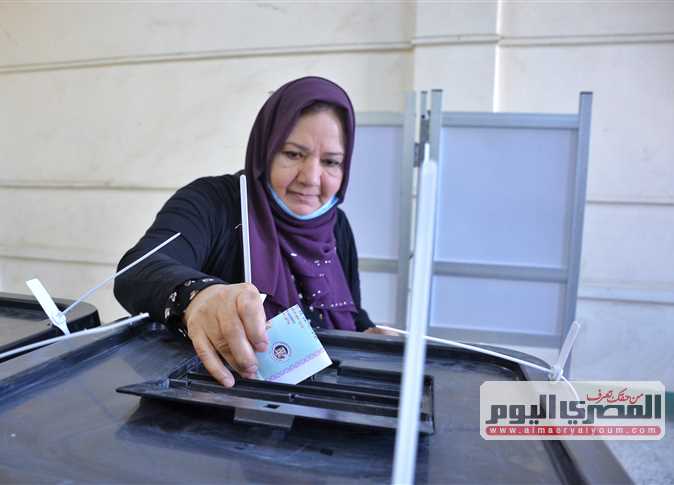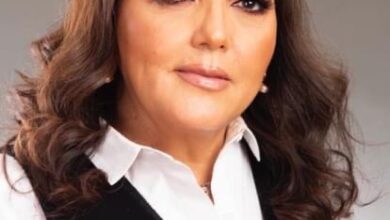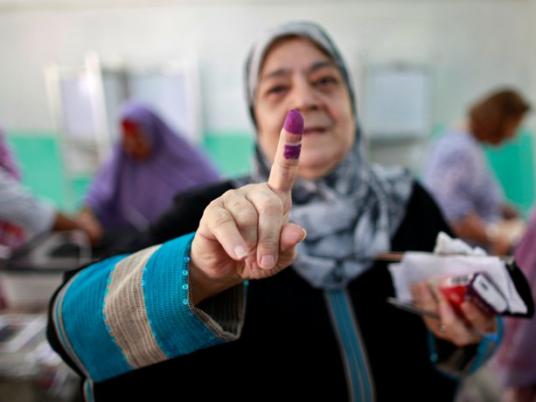After weeks of equivocal statements, reformist Muslim Brotherhood leader Abdel Moneim Abouel Fotouh has announced that he will run for president, in clear defiance of his organization’s decision not to field a presidential candidate, according to a Reuters report published Thursday.
The 60-year-old doctor affirmed that he would run as an independent in the election slated for December.
“He speaks to the frame of reference of the Egyptian people, which is moderate conservatism. None of the other candidates are like that,” Ahmed Osama, an official spokesperson for Abouel Fotouh’s campaign, told Al-Masry Al-Youm.
Abouel Fotouh, working with at least ten close advisers, is immersed in hammering out the details of his platform, which will focus on education and development. In a month’s time, the platform will be unveiled, according to Osama.
In recent years, Abouel Fotouh has risen to the fore as a dovish voice within the 83-year-old Islamist organization. His liberal views on women, Copts and the role of Islam in politics set him at odds with the group’s hawkish leadership.
The tension between Abouel Fotouh and conservatives culminated in his exclusion from the Guidance Bureau, the group’s highest executive body in an allegedly fraudulent poll in 2010. He has nonetheless maintained his appeal within the ranks of young, more open-minded Brothers.
Weeks after Hosni Mubarak stepped down, some of these youths launched an online campaign to endorse Abouel Fotouh’s candidacy for presidency. Since then he has only made vague statements on the matter.
The Muslim Brotherhood’s position on the candidacy was unequivocal. After a high-level meeting, hawks within the group affirmed an earlier decision not to field any presidential candidates and added that they would not back Abouel Fotouh’s candidacy if he decided to run.
Now the group might have to deal with the tension caused by Abouel Fotouh’s announcement.
His candidacy is expected to exacerbate the rift between the old and young factions within the Muslim Brotherhood, says Diaa Rashwan, an expert on Islamist groups with the Ahram Center for Political and Strategic Studies.
“Abouel Fotouh is considered one of the group’s founders and he is very much liked by many youths,” said Rashwan. “His nomination will add to the debate within the Muslim Brotherhood. It will at least raise the question of why not back an Islamist who comes from the Muslim Brotherhood.”
A division over this question has already begun. Half of Abouel Fotouh’s campaigners are Muslim Brotherhood youths, according to Osama.
One was recently dismissed and some others were questioned by Brotherhood leaders for being involved in Abouel Fotouh’s campaign, says Osama, a 34-year-old engineer who has been a Muslim Brotherhood member for the last 15 years.
More young brothers, especially vocal and defiant ones, might back Abouel Fotouh soon.
Ahmed Abo Zekry, a 28-year-old Brother, affirms that the group’s retaliation would not deter him from joining Abouel Fotouh’s campaign.
“I wish the Muslim Brotherhood had backed him. Who would they back instead?” said Abo Zekry, one of hundreds of young Brothers who have recently criticized many of their leaders’ decisions.
Mahmoud Ghezlan, a member of the Guidance Bureau, said he was not aware of any interrogations or dismissals. “I do not think that anything of the sort has already begun,” said the senior leader, adding that the group is yet to decide how to deal with members who violate its decisions.
Abouel Fotouh seeks to market himself as the missing link between Islamists, on the one hand, and secular and Coptic voters on the other. Speaking to Reuters about recent sectarian clashes, Abouel Fotouh said: “Such sectarian strife makes me more determined to pursue the presidency. As elements of religious extremism creep up in the transition period, the country needs someone who is best connected to the Muslim, Christian and liberal sides of the political spectrum.”
For years, Abouel Fotouh had invested heavily in building bridges with activists and politicians of different ideological camps. His membership in the Kefaya movement in the mid-2000s along with communists, Nasserists and liberals proved his tolerance and the flexibility of his political outlook.
Rashwan contends that this broad appeal remains restricted to the intelligentsia, and it is still to be seen whether he enjoys a similar popularity at the grassroots level.
“It is the people who vote, not the elite,” says Rashwan. “No one can predict how people will vote in the next elections. We expect the turn out to increase five times in the elections and we do not know how these new voters see the world.”
Under Mubarak, most voters refrained from engaging in polls, which were consistently fraudulent and plagued with violence. The official turnout usually hovered around 20 percent. Civil society activists always contested these figures, holding that the true turnout was much lower.
In the first referendum in post-Mubarak Egypt, held in March, the turnout jumped to more than 40 percent. Eighteen million voters cast their ballot on a package of military-backed constitutional amendments in a historic poll widely seen as free and fair.
Under these amendments, Abouel Fotouh needs 30,000 signatures to be eligible to run for president. According to his campaigner Osama, 20,000 have been already collected.




